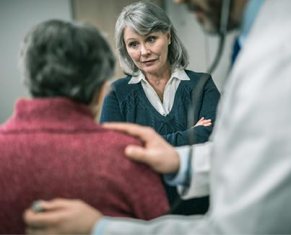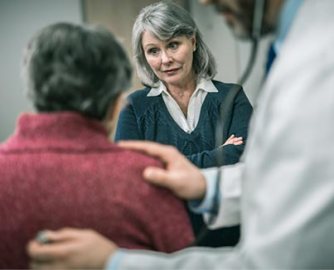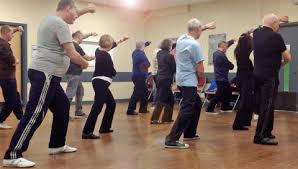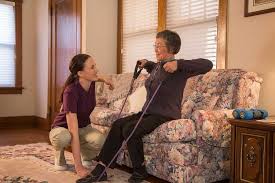 They say every moment in your life represents a note in your personal life song. If this is true, what does your life song sound like and are you happy with it so far? Are you ready to compose the final notes? In a recent survey conducted by Home Instead, Inc., 85 percent of North American seniors who have made plans for their final years agree that planning is a way for them to control how their life song ends. It’s important for seniors in Minneapolis and the surrounding communities to not only plan their retirement years, but also for the time between the active retirement years and the last days on earth. It’s never too late to enhance your song and make it an even more beautiful work of art.
They say every moment in your life represents a note in your personal life song. If this is true, what does your life song sound like and are you happy with it so far? Are you ready to compose the final notes? In a recent survey conducted by Home Instead, Inc., 85 percent of North American seniors who have made plans for their final years agree that planning is a way for them to control how their life song ends. It’s important for seniors in Minneapolis and the surrounding communities to not only plan their retirement years, but also for the time between the active retirement years and the last days on earth. It’s never too late to enhance your song and make it an even more beautiful work of art.
To encourage conversations about loved ones’ wishes for their final years of life Home Instead Inc. has launched their latest public education campaign, Compose Your Life Song℠: Planning Your Final Years. This program will reinforce the role Home Instead Senior Care Minneapolis plays in helping seniors live their final years where they choose – in their own home. The Compose Your Life Song℠ public education program offers free resources that encourage seniors and their family members to have the difficult conversations about plans and wishes for their final years, while also exploring end-of-life options, including finances and getting their affairs in order. This program also provides insurance, care and funeral planning resources.
Watch as Home Instead Senior Care Minneapolis’ co-owner, Kathleen Stuck, explains what the Compose Your Life Song℠ program is all about:
5 Misconceptions About End-of-Life Planning and Hospice Care
Not many topics of conversation bring on misconceptions as end-of-life planning and hospice care do. Clearing up the confusion and recognizing the myths that often surrounds a loved one’s final days and years actually helps the family members fully understand how the senior loved one want to live to the end. Here are 5 common misconceptions:
- I’ll think about it tomorrow.
- It’s best to avoid uncomfortable end-of-life conversations.
- Developing and end-of-life plan is a one-time event.
- Hospice services should not be discussed until death is imminent.
- Hospice care is more expensive.
Understanding each of these misconceptions and working through the myths of one’s final years and the decisions that surround that time will empower the family caregivers to help their loved ones make necessary choices and tough decisions together. It may even spark the conversation for their own plans which will benefit their children in the end. To learn more detailed information on each misconception, click here.
Final Years Planning: Where to Find Assistance
If all of this seems overwhelming, you are not alone. Communication is key when developing a final years’ plan for your loved one and talking with professionals and family members will help ensure the important aspects of the plan are in place. Following are the key aspects of a plan and the professionals who can help:
- Consult with an attorney
- Find a financial planner
- Locate a funeral director
Read more tips as well as detailed information for each one by clicking here. You can also read Financial Planning for Your Final Years: 7 Questions to Consider. This will challenge you to reassess your life situation and the priorities which are important. By asking and answering these questions on a regular basis it will help to understand how your loved one’s life song will play out.
This article expands on the Compose Your Life Song℠ campaign, click here to read our first blog post.
Learn more about Home Instead Senior Care’s public education program along with free resources and tips to help guide you through the important conversations and planning for your loved one’s final years by visiting www.composeyourlifesong.com. Take action and own your destiny so your final years can be a song everyone will want to listen to. Start composing your meaningful life song today.
Home Instead Senior Care Minneapolis understands the stress that working family caregivers face and offers a wide range of in-home care services, including respite care, personal care, 24-hour and live-in care and Alzheimer’s and other dementias. The loving and experienced CAREGivers at Home Instead Senior Care Minneapolis offer friendly, responsive care for seniors right in your Minneapolis, Minnesota community, as well as support for the family. To inquire about any of our senior services available or becoming a CAREGiver, call us at 763-544-5988 today.

 We all know the pain when a loved one passes away, but what about the ambiguous loss we feel when
We all know the pain when a loved one passes away, but what about the ambiguous loss we feel when  We are humbled to report that once again this holiday season, Minneapolis volunteers went above and beyond to make Christmas memorable for local seniors who may not have otherwise received gifts or companionship.
We are humbled to report that once again this holiday season, Minneapolis volunteers went above and beyond to make Christmas memorable for local seniors who may not have otherwise received gifts or companionship.
 It seems our lives are busier than ever these days. Women are navigating a career while raising children and in many cases, also
It seems our lives are busier than ever these days. Women are navigating a career while raising children and in many cases, also 
 Did you know according to the
Did you know according to the  To help working family caregivers
To help working family caregivers 
 Join the crowd! The
Join the crowd! The  Studies show that staying physically and
Studies show that staying physically and  Regular exercise can keep older adults healthier and reduce the
Regular exercise can keep older adults healthier and reduce the